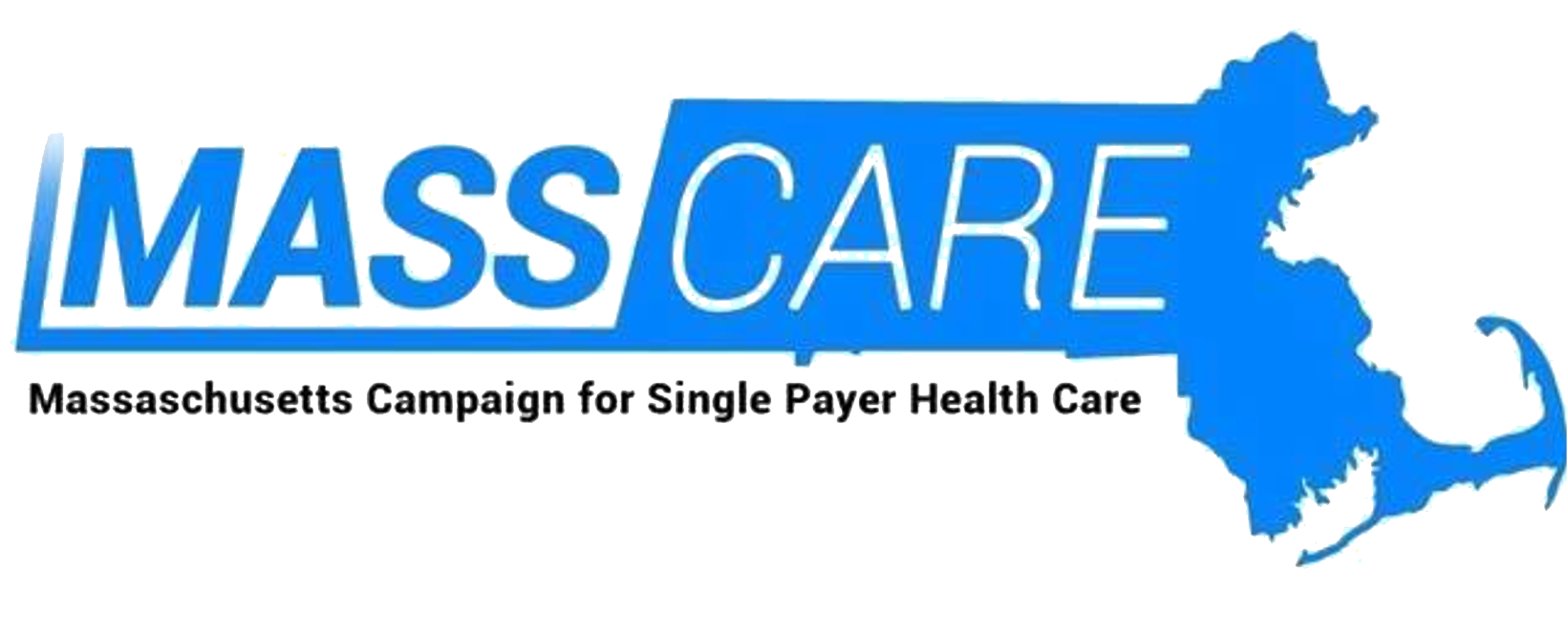
Healthcare

Working families across the state are being crushed by the rising cost of healthcare. It's time for Medicare for All.
Today, more than 30 million Americans don’t have health insurance and medical bills are the number one cause of bankruptcy in the United States. Despite massive spending on our healthcare system, Americans have worse health outcomes and a higher infant mortality rate than countries that spend much less. We must invest in the development of new drugs and technologies and lower the costs of prescription drugs, so everyone, regardless of their personal income or financial position, is able to access the care they need. The Legislature has the power to put an end to the healthcare crisis. Healthcare is a fundamental human right - Bay Staters deserve better.
We're failing to get people the healthcare they need
Medicare for All
State-level Medicare for All could save us money while making healthcare free for every resident of the Commonwealth. Despite having almost universal coverage, over 70% of insured residents report issues with affordability. Meanwhile, 36% of our state budget goes to pay for healthcare and within the private system, Massachusetts Health Connector patients face a 7.6% premium increase this year, totaling at least 31% since 2015.. MA has one of the highest per capita healthcare costs in the country and a single-payer system would save 29% of our current spending on healthcare.
The Opioid Crisis
In 2015, at least 1,750 people died from opioid overdose in MA, and by 2021, the annual death toll had risen 30% at nearly 2,290. Additionally, Department of Public Health data shows widening racial disparities in overdose deaths. Every day, 6 people die of drug overdose in Massachusetts.
Abortion Access
Though the ROE Act was a significant milestone, barriers to reproductive health care still exist, especially for low-income communities, communities of color, youth, and immigrant communities. Stronger digital privacy laws must be passed to keep patients safe from harassment and targeted litigation. MassHealth reimbursement rates, often far below the cost of care, must be increased and Bay Staters of all ages should be able to access timely care without interference from parental consent or judicial bypass. Lastly, a research and education effort must be launched to ensure that our state has the resources it needs.
bills to support Healthcare as a Human Right
Medicare for All
Establishes a single-payer health care system in Massachusetts
Provides health care for all Massachusetts residents and individuals who work more than 20 hours per week in the state without premiums, co-pays, or deductibles
Bans private insurance coverage for services already covered by the single-payer system
Abortion Access Act
Requires patients to sign informed consent form, with translations available, for any reproductive-care-related procedure
Removes mandatory waiting period
Bars providers from forcing patients to review ultrasound results and appear at provider facilities any longer or more frequently than is the standard of care
Targets Crisis Pregnancy Centers with provisions ending any counseling or information in any form that is “medically inaccurate, medically unnecessary, or misleading”
Adds additional provisions to expand inclusion and accessibility in reproductive healthcare
Removes age requirement to sign informed consent forms to receive reproductive healthcare
Allocates support and unlimited financial assistance to veterans seeking abortion-related care
Overdose Prevention Centers
Establishes a 10 year pilot program of overdose prevention centers (OPCs) that require approval by local boards of health
Establishes legal and regulatory framework to operate OPCs successfully
Makes legality of OPCs explicit, including civil and criminal protection for municipalities, providers, and clients
Requires data collection to prevent overdose deaths and guide public health efforts
common questions:
Won't Single-payer Healthcare cost too much?
No, in fact a Single-payer healthcare system will save up to $21 billion per year. Much of that cost savings come from reduced insurance company overhead. Instead of paying premiums, co-pays, and a litany of other confusing charges, you will pay a small tax -- smaller than what you're already paying for healthcare.
Will Medicare for All increase wait times and result in rationing care?
No. Studies show that countries with universal single-payer health care systems have on average lower wait times than the United States. Patients are also no longer restricted to seeking care from providers that are in their insurance network, so the range of options patients enjoy are larger under a single-payer system. This enables providers to be able to keep up with demand, instead of having to work around the artificial limits that insurance companies place on patients and providers.
References:
- 1. Klufts, Jamie “In Support of a Single Payer Healthcare System”, NASW-MA, 11/14/2017
- 2. “Medical Debt in Massachusetts”, Massachusetts Health Reform Survey, 2012
- 3. Friedman, Gerald, 2018 Study for Mass. Medicare for All, 2018
- 4. “Health and the City” Boston University School of Public Health, March 8, 2015
- 4b. Additional life expectancy disparities within MA (not within Boston): “Disparities in life expectancy in Massachusetts driven by societal factors,” Harvard T. H. Chan School of Public Health, 2018
- 5. “Health Insurance: Premiums and Increases” National Conference of State Legislatures, 12/4/2018
- 6. “Report Finds Medical Debt Increasing”, 2/27/2007
- 7. “Medical Debt in Massachusetts”, Massachusetts Health Reform Survey, 2012
- 8. “The Remaining Uninsured in Massachusetts” Feb 2016
- 9. Friedman, Gerald, 2018 Study for Mass. Medicare for All, 2018
- 10. 190th Session (2017-2018) Bill never received a vote but was instead “combined” with dozens of other healthcare bills into a new draft which didn’t establish Medicare for all.
- 10b. 189th Session (2015-2016) Bill sent to Study. No Study ever conducted
- 10c. 188th Session (2013-2014): Bill sent to study. No Study ever conducted
- 10d. 187th Session (2011-2012): Bill sent to study. No Study ever conducted
- 11. In the 190th Session (2017-2018), a bill by Rep. Bensen was introduced to study the costs of a single payer healthcare system. The bill was “combined” with many other Healthcare bills in H4605, but without the single payer benchmark study.
- 12. Medicare for All Factsheet
- 13. "41% of Massachusetts families struggle to afford health care" by the Center for Health Information and Analysis of Massachusetts
- 14. Single Payer Frequently Asked Questions by Mass-Care
- 15. Overdose Prevention Centers Factsheet
- 16. Massachusetts Beyond ROE Coalition
- 17. Medicare for All



